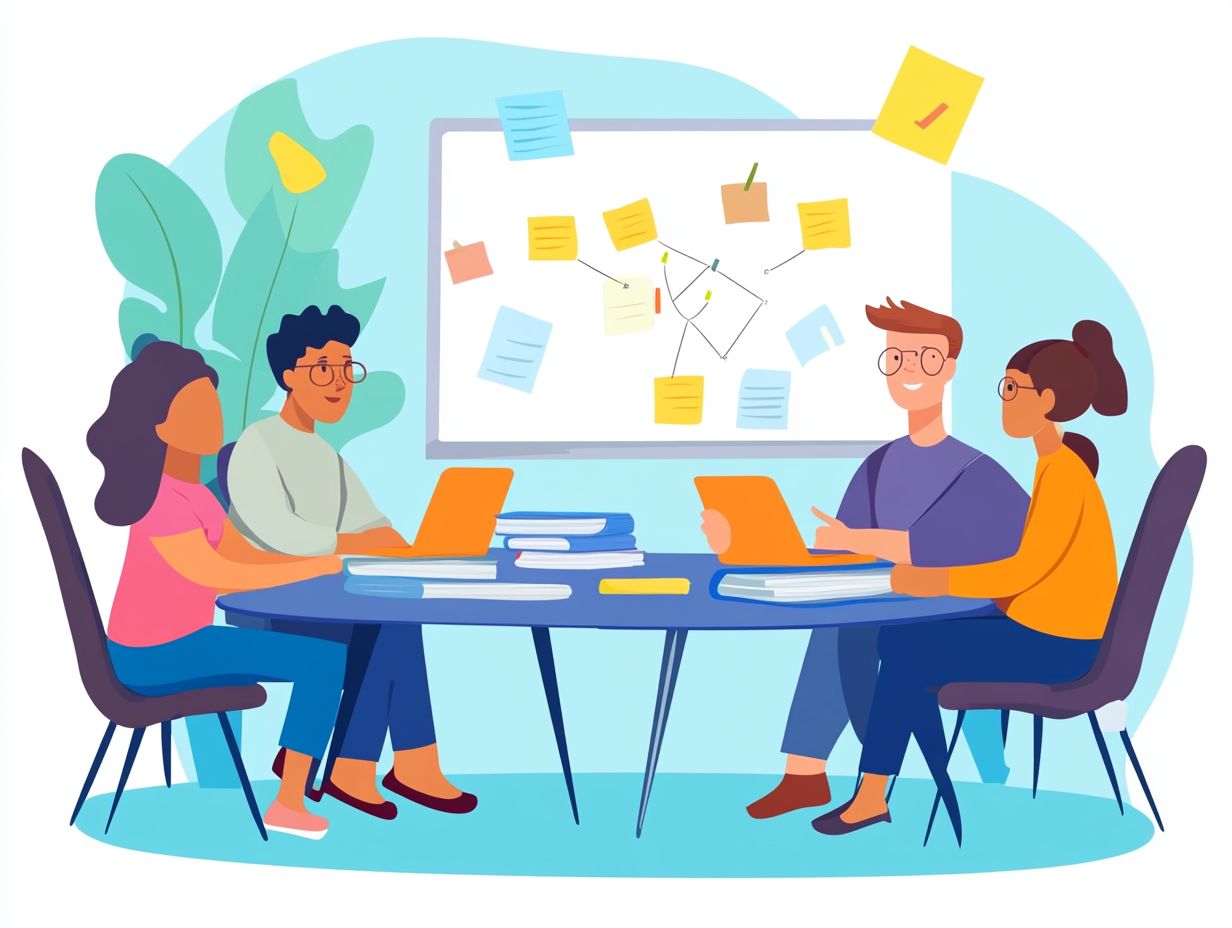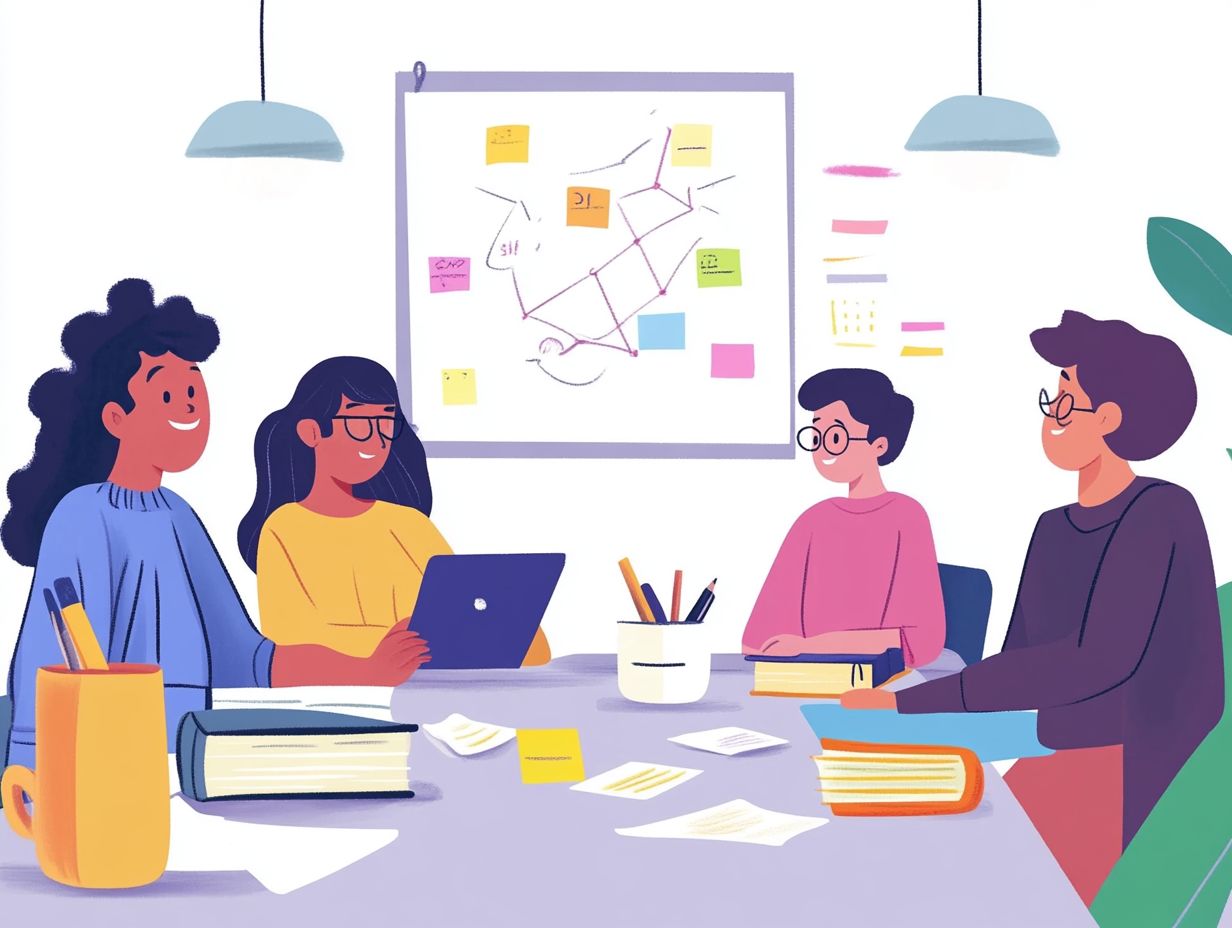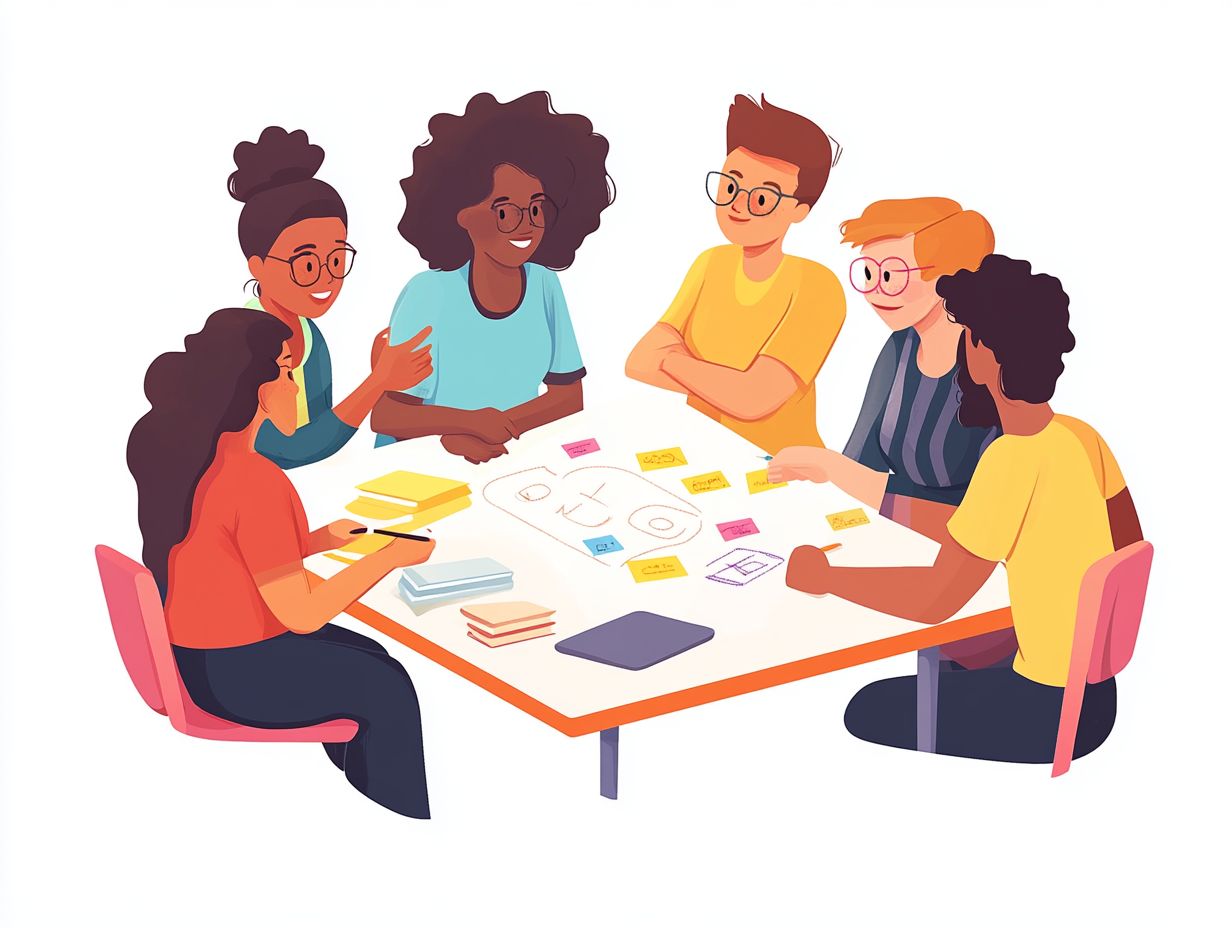Goal setting is a vital tool that can significantly enhance the approach to lifelong learning and personal development. It offers direction, motivation, and a structured learning framework for measuring progress. This article examines the various advantages of establishing goals, including learning opportunities, distinguishes between short-term and long-term objectives, essential for career advancement, and presents the SMART goal framework to facilitate the development of effective plans and knowledge acquisition. Furthermore, it addresses strategies for tracking progress, overcoming obstacles, and integrating goal setting into the learning journey and educational journey. To fully realize your potential, we invite you to continue reading about diverse learning and continuous learning.
Key Takeaways:
Why Goal Setting is Important for Lifelong Learning

Goal setting is an essential element of lifelong learning, as it provides a structured framework for individuals pursuing personal and professional growth and adaptability skills. According to ResearchGate, goal setting significantly impacts self-directed learning and academic achievement, reinforcing its importance.
By establishing clear goals, learners are able to cultivate a learning mindset that enables them to recognize a variety of learning opportunities through volunteer opportunities. This practice not only aligns with their personal interests but also fosters accountability for their educational pursuits and formal education, encouraging individuals to take ownership of their learning experience and agency for skills.
Furthermore, setting goals enhances career advancement and ensures that learners interact with pertinent educational resources and professional certifications, thereby reinforcing a growth mindset that is vital for ongoing learning.
The Benefits of Setting Goals
Establishing goals provides numerous benefits that significantly contribute to personal growth, mental health, and effective learning outcomes.
By setting clear objectives, individuals can enhance their focus, facilitating the channeling of their energies into structured learning pathways. This clarity leads to improved motivation, as these goals transform into attainable milestones that instill a sense of accomplishment and drive further progress.
Moreover, reflecting on one’s achievements not only reinforces effective learning habits but also promotes overall mental well-being and mental health. For example, breaking down larger educational targets into manageable components can greatly assist in knowledge retention, fostering a deeper understanding of key concepts. These insights are supported by a recent publication by Taylor & Francis, which explores the psychological effects of goal setting and its benefits on mental health.
This systematic approach creates a positive feedback loop, where the completion of each task encourages further exploration and engagement in the learning process through learning journals.
Types of Goals for Lifelong Learners
Lifelong learners can greatly benefit from the ability to distinguish between short-term and long-term goals, as both are essential components in the realms of personal and professional development.
Short-Term vs. Long-Term Goals

Short-term goals are defined as specific, actionable steps that can be accomplished in the near future, whereas long-term goals represent broader aspirations that guide an individual’s overall learning journey.
By concentrating on short-term goals, such as completing a specific course or mastering a new skill within a few months, individuals can enhance their competencies and build self-confidence.
For example, utilizing online platforms for targeted learning can effectively facilitate the achievement of these objectives, as highlighted by Indeed’s insights on setting short-term career goals.
In contrast, long-term goals, such as obtaining a degree or advancing to a leadership position, necessitate sustained effort and strategic planning over several years, enhancing organizational goals.
Achieving these goals often requires the development of comprehensive learning strategies, including mentorship and networking and teaching others, which can significantly expand career opportunities.
The process of establishing these goals also fosters adaptability skills, equipping individuals to navigate the dynamic demands of today’s work environments, supporting cultural competence.
Creating Effective Goals
The establishment of effective goals is essential for successful lifelong learning.
The SMART goal framework offers a structured methodology for formulating clear objectives that can result in meaningful learning outcomes and global learning.
SMART Goal Framework
The SMART goal framework serves as an effective tool for establishing learning objectives that are clear and actionable, thereby enhancing accountability for learning and facilitating knowledge acquisition.
This method emphasizes five essential components: Specific, Measurable, Achievable, Relevant, and Time-bound, which collaboratively work to create well-defined targets.
For example, in a professional setting, rather than simply stating, “I want to improve my skills,” a SMART goal might be articulated as, “I will complete three online courses in project management by the end of this quarter to enhance my ability to lead team projects effectively.”
On a personal level, an individual may set a goal such as, “I will read one book related to personal finance each month for the next six months to increase my knowledge in managing finances more effectively.”
By employing this structured approach, individuals not only clarify their objectives but also cultivate a sense of responsibility as they monitor their progress through learning platforms and reflect on their accomplishments throughout the process, engaging in self-improvement.
Tracking Progress and Making Adjustments

Monitoring progress and making necessary adjustments to established goals is essential for effective lifelong learning. This practice ensures that learners stay on track and are able to adapt to evolving circumstances.
Tools and Strategies for Tracking Goals
Utilizing effective tools and strategies for tracking goals significantly enhances accountability for learning and supports self-directed learning initiatives and learning tools.
These tools can take various forms, including digital tracking applications such as Trello or Todoist, which provide visual indicators of progress, or spreadsheets that allow for customizable goal metrics. Learning management systems (LMS) like Canvas or Blackboard offer integrated functionalities that assist learners in monitoring their achievements over time, fostering digital literacy.
Plus these tools, employing diverse learning strategies—such as spaced repetition and active recall—can greatly improve retention and comprehension and enhance skills development. The emphasis on digital literacy ensures that individuals are not only proficient in using these tools but also skilled at analyzing and reflecting on their progress, thereby fostering a more dynamic learning environment.
Overcoming Obstacles and Staying Motivated
Overcoming obstacles and sustaining motivation are essential components of lifelong learning.
This endeavor necessitates the cultivation of a growth mindset and proactive engagement with diverse learning opportunities.
Dealing with Setbacks and Maintaining Motivation

Dealing with setbacks is an inherent aspect of the learning journey; however, maintaining motivation through effective learning strategies and positive reinforcement can facilitate personal development.
When individuals encounter obstacles, it is essential to reframe these challenges as opportunities for growth rather than viewing them as insurmountable barriers. This shift in perspective fosters a more constructive approach to problem-solving, allowing individuals to extract valuable lessons from their experiences.
Incorporating positive reinforcement into their routines can significantly enhance their commitment to achieving personal goals. By recognizing and celebrating small victories, individuals cultivate a resilient mindset that propels their continuous pursuit of knowledge.
Ultimately, the capacity to navigate setbacks while remaining focused on their objectives is crucial for achieving sustained success in lifelong learning endeavors.
Incorporating Goal Setting into Your Learning Routine
Incorporating goal setting into one’s learning routine is essential for establishing a structured learning environment that aligns with individual interests and enhances accountability for the learning process.
Tips for Making Goal Setting a Habit
Developing effective goal-setting habits is essential for lifelong learners who seek to achieve continuous self-improvement and manage their time efficiently through time management.
By establishing a structured approach to goal setting, individuals can cultivate a mindset that values reflection and strategic planning. Allocating regular intervals—such as weekly or monthly—to assess progress and set new objectives not only fosters accountability but also encourages deeper insight into one’s learning journey and learning communities.
Engaging in this practice consistently can lead to the enhancement of learning habits, as it enables individuals to identify their strengths and areas needing improvement in professional development. Ultimately, committing to regular goal setting paves the way for sustained personal development and promotes long-term achievement.



